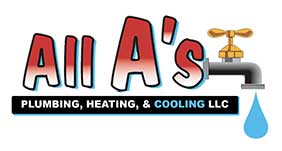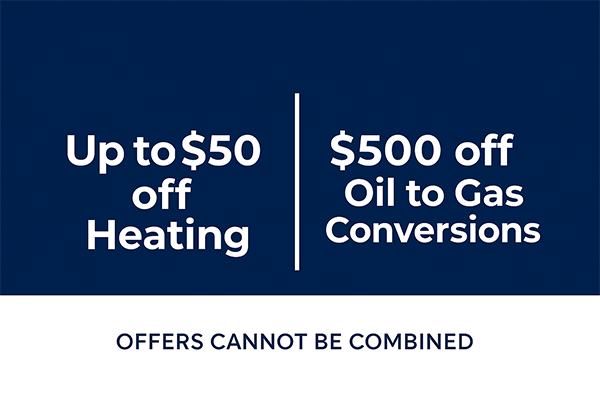No Hot Water?
Few things are as frustrating as turning on the faucet or shower and getting only cold water. When you have no hot water issues throughout your home, it’s time to do something.
What Causes No Hot Water?
There are several common culprits why you have no hot water as it disappears in your home.
Faulty Water Heater
A water heater that is not functioning correctly is one of the most common culprits when the hot water supply in a home is disrupted. Water heaters rely on components like heating elements and thermostats to heat the water and maintain the proper temperature.
If those internal parts malfunction or fail, the water heater cannot bring the water to the desired hot temperature as it should. For example, electric water heaters have heating elements that can wear out over time and eventually break, while gas water heaters can have issues with the pilot light going out.
Sediment buildup and other obstructions in the tank can also prevent the water from being heated efficiently. Any water heater problems can result in decreased hot water supply, intermittent hot water, or no hot water coming from the faucets, showers, and appliances in a home that depends on the water heater operating effectively.
Malfunctioning Thermostat
The thermostat is a critical component of water heaters that controls the temperature of the heated water. It communicates with the heating elements or burner to signal when more heat is needed to keep the water at the desired set temperature.
If the thermostat is defective or malfunctions, this vital communication is halted. An inaccurate thermostat may not correctly tell the water heater to continue heating the water once it cools below the set point. A stuck thermostat could signal heating even when not required, leading to energy waste and an overheated tank.
In either case of the thermostat failing to regulate temperature, the result is that heated water is unavailable when needed.
Clogged Pipes
Clogged pipes and mineral buildup in the water lines can restrict water flow, limiting hot water supply. As water travels through the pipes from the water heater to faucets and appliances, scale and sediment accumulate over time.
This buildup narrows the path the hot water can pass through to reach its destinations. Even though the water heater still produces hot water appropriately, the clogged pipes act as a bottleneck, impeding the hot water’s circulation. The obstructed water flow means the heated water cannot make it to the showers, sinks, washing machines and other endpoints as efficiently.
The result is decreased water pressure and hot water that cools significantly or turns lukewarm when it exits the faucet. To restore the total hot water supply, the buildup in the pipes needs to be cleared so water can flow freely again and deliver hot water unimpeded from the water heater to its exit points.
Leaks
Hot water pipes and plumbing components can develop leaks over time. The constant dripping can drain the tank fully if these leaks occur along the hot water delivery path between the water heater and the faucets. Even tiny leaks add up over hours and days, slowly depleting the hot water reserve.
The tank may heat new water, but with unrepaired leaks, that heated water will escape through the leak rather than reaching its destination at a sink or shower. An empty or low tank means less hot water is available for household needs.
The drained water heater cannot meet demand, resulting in frustratingly cold showers, long waits for hot water, and insufficient hot water for appliances or tasks like washing dishes. Detecting and repairing any hot water leaks is crucial for preventing complete draining of the hot water tank and restoring constant hot water service.
Faulty Valves
Shutoff and faucet valves are essential in controlling water flow in plumbing systems. The hot water supply can be restricted if these valves fail to open fully or have other issues.
- Shutoff valves are installed on the hot and cold water lines connected to the water heater. If a hot water shutoff valve is accidentally closed or is only partially open, less hot water makes it past the obstruction point.
- Faucet valves guide water flow when the faucet is turned on and off. Old, corroded, or damaged faucet valves may not open fully or close correctly, limiting the amount of hot water released. Malfunctioning shower or appliance valves can act similarly.
The hot water is available in the water heater tank, but defective valves block it from exiting the faucets and reaching its destination.
No Hot Water? The Benefits of Hiring a Professional Plumber
Attempting DIY troubleshooting on your water heater or plumbing system risks further damage and injury. Licensed plumbers have the expertise to diagnose and quickly repair your hot water issues accurately. They have experience working on all water heater brands and types.
Plumbers have the proper tools and safety knowledge to handle tricky plumbing jobs.
Don’t leave your family without hot water any longer. Contact a trustworthy local plumber like All A’s Plumbing in New Jersey today to get your hot water fully restored.



Recent Comments